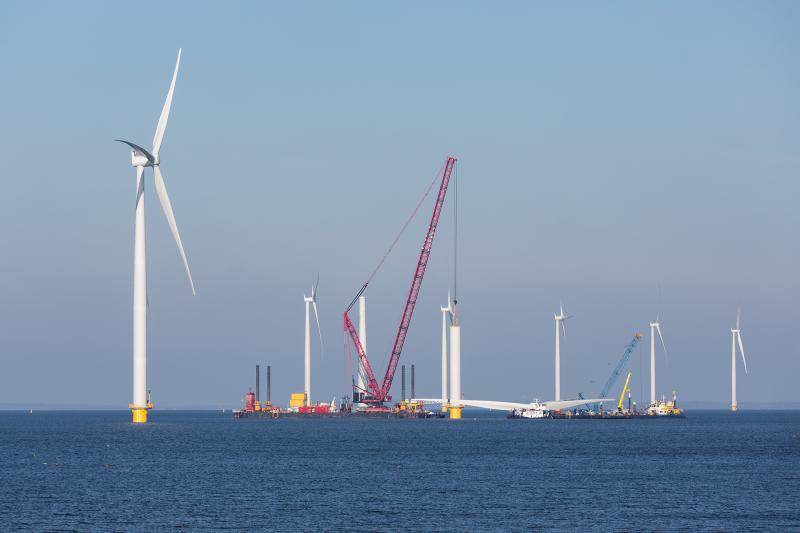Discussing offshore wind and whales
I attended an April 12 program at the Rehoboth library that was sponsored by an offshore wind development company and featured three speakers that had considerable education and experience in the development and operation on offshore wind as an electrical power-generating source. They spent most of the hour-and-a-half explaining how windmills are installed, and how the power is transmitted from offshore to land and distributed to customers.
If the attendees had questions, they were asked to submit them on cards that were read at the end of the presentations. Sounds like a good idea, but as I have seen before, the situation quickly dissolved into a free-for-all, as people can’t behave and soon you have arguments between the speakers and the floor, and some on the floor arguing among themselves. That’s when I left.
They did pass out a paper from the National Oceanic and Atmospheric Administration dated March 2023. First, the scientists at NOAA stated that humpback whales are not listed as endangered or threatened. However, all humpback whales are protected under the Marine Mammal Protection Act.
NOAA Fisheries is a science agency dedicated to minimizing risks to protected resources, habitats and managed fisheries throughout the life cycle of offshore wind energy projects. The agency is responsible for several regulatory processes that help reduce impacts to marine animals and their habitats from human activities, including during offshore wind development.
The people at NOAA Fisheries work with partners to analyze and understand the causes of death when they are able, following the science and data. At this point, there is no evidence to support speculation that noise resulting from wind development-related site characterization surveys could potentially cause mortality of whales, and no specific links between recent high numbers of whale mortalities and currently ongoing surveys.
They will continue to gather data to help determine the cause of death for these mortality events. They will also continue to explore how sound, vessel and other human activities in the marine environment impact whales and other marine mammals.
The three paragraphs above are taken almost exactly as written from the fact sheet passed out at the meeting. While it is not possible to examine every whale that turns up dead because of many factors including location of the body, how long the animal has been dead and available equipment, NOAA and its partners, such as MERR Institute in Delaware, try to examine as many as possible.
In 2017, NOAA declared an Unusual Mortality Event for humpback whale strandings along the Atlantic coast from Maine to Florida. The event is ongoing and includes animals that have stranded since 2016. As of Feb. 8, there are 181 humpback whale mortalities included in the UME. Partial or full necropsy examinations were conducted on about half of the whales. Of the whales examined, about 40% had evidence of human interaction, either ship strike or entanglement. Vessel strikes and entanglement in fishing gear are the greatest threats to large whales.
Two factors seem to be the cause of so many whales being killed. One, there are more humpback whales than ever, and two, there are more fish closer to shore.
I have personally seen whales chase menhaden right up to the beach, and many times, we saw them within the 3-mile limit while fishing for striped bass out of Virginia Beach. This activity will put the whales in contact with large ships, and I don’t think the U.S. Navy is likely to slow down to 10 knots when performing operations.
When dead whales began to show up on local beaches, many non-scientists were quick to blame the offshore wind companies. I said then I would wait until real scientists studied the situation and reported their findings. The real scientists at NOAA have done that and reported that the offshore wind sonar is not responsible for the dead whales.
Do I expect everyone to believe this? Heck, no! I expect to be called some very uncomplimentary names and get accused of drinking the government Kool-Aid.
It has been my pleasure to know some of the scientists at NOAA, and I do not believe they would lie. If they had proof that the sonar used to map the bottom for placement of windmills or power cables killed whales, they would say so. They have no problem cracking down on overfishing or stopping habitat destruction, so I don’t think they would hesitate to stop a practice that was killing large marine mammals.
The burning of fossil fuels to generate electricity is a thing of the past. Offshore wind is just one of the things that will replace it, and it will soon be here.























































